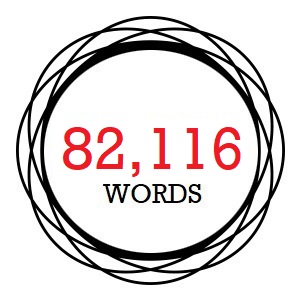82,116
 Lots of people – usually inexperienced writers, or those who know very little about the publishing industry – have lofty misconceptions about being an author. I can admit to having them, when I was a young, inexperienced, and naive writer. But now I’m older and wiser.
Lots of people – usually inexperienced writers, or those who know very little about the publishing industry – have lofty misconceptions about being an author. I can admit to having them, when I was a young, inexperienced, and naive writer. But now I’m older and wiser.
Well, older.
This week, I thought I’d look at some of the misconceptions that commonly do the rounds.
-
Being an author is lucrative.
I heard a joke yesterday:
- What’s the difference between an author and a pizza?
A pizza can feed a family of four.
The top-end authors – JK Rowling, Stephen King, Lee Child, etc. – would be rich. But most authors are working full- or part-time jobs, and writing on the side. Now that’s most. Go look at the books in a bookstore, and determine how many of those authors would be rich. In Australia, it’s harder, since we’re a tiny market.
So you can ditch the dream of marching into your job and telling your boss to stick it. You could have a huge hit. It could go international. Be turned into a film. Etc. It could happen. It could. You can’t rule anything out, because it does happen.
But it’s rare.
And if you think you’re the one, well, damnit, think about how many other writers have had that exact thought – because they have.
I have an idea for a book, and it’s going to be a bestseller!
Well, it might be. It just might be. But there’s no guarantee.
Plenty of great books go unsold, and plenty of bad ones sell well. Publishers can market a book. You can hustle relentlessly. But you’re still left to the whims of the public. Sometimes, it’s just about timing. The market might be saturated, or another similar book might’ve taken the limelight. Sometimes, it’s just bad luck – for whatever reason, a book doesn’t capture the public’s imagination en masse.
Your idea might be unique, your writing brilliant, and your book the best thing ever published, but that still doesn’t guarantee that people are going to buy it.
Writing is easy.
I would like to embark on The Les Zig Tour 2019 (dates and venues to be announced), where – using a cold, wet, mackerel – I slap everybody who believes writing is easy.
You might have a brilliant imagination and a fantastic story idea. You still have to articulate that onto the page. That takes structure, voice, prose, plotting, characters, arcs – well, this list can go on.
Consider this if you’re likely to be on my tour: go and paint me a masterpiece, and see how well you do with that if you have no or little background in art. Writing is about that easy.
My first (or second) draft is brilliant – I don’t need to work on it anymore!
Your first draft will never be brilliant. It might be filled with brilliant potential, but it takes a lot of work to realise that potential.
Both Just Another Week in Suburbia and August Falling came out what I consider ‘easy’, in terms of writing. They flowed and developed and evolved.
Yet both were revised extensively – around thirty drafts of manuscripts that were just in excess of 80,000 words. Both books also had two major structural revisions, in which lots of stuff (especially in JAWIS) was cut and new material was written.
I hope reading my books is effortless, but it took lots of work to get them there.
Publishers are infallible.
Well, Pantera is, because they picked me. (← Joke.)
Publishers aren’t. There’s plenty of tales about manuscripts that have been rejected umpteen times, are finally picked up, and become bestsellers or win literary prizes. And books that have been bought for huge sums, only to flop.
The literary landscape is a subjective and capricious market that’s impossible to consistently predict.
Publishers are taking educated guesses, but they’re still guesses. Nobody truly knows what will be a hit. If they did, then all they’d have are hits.
It just doesn’t happen.
Only good books are published.
There’s plenty of bad books that have been published. There are plenty of bad books that have done well. Surely, you, as a reader, would’ve read a book (or two) and thought, This is terrible – how was it ever published?
Reading is subjective. What I love you might hate. And what you love I might hate. But I think there are also misfires – just like the film industry.
Even with all their expertise and money, Hollywood still churns out bad movies. For whatever reason, they just don’t work. Some go on to become cult classics (e.g. Plan 9 from Outer Space). Some do well based on branding or the franchise (i.e. existing fanbases) supporting them. Others get masked in hype. But it doesn’t change what they are.
I think the same applies to any artform, be it film, music, art, sculpture, books, etc.
Lots of these points overlap and intertwine and tangle you up, but they’re worth thinking about.
As far as TFSoLY goes, I’ve just made some massive cuts again – about 5,000 words worth, although I hope I’ll be able to reseed some of it back into the new material I write.
But, again, the story wasn’t working well enough for me to move forward.
So back I go again.
